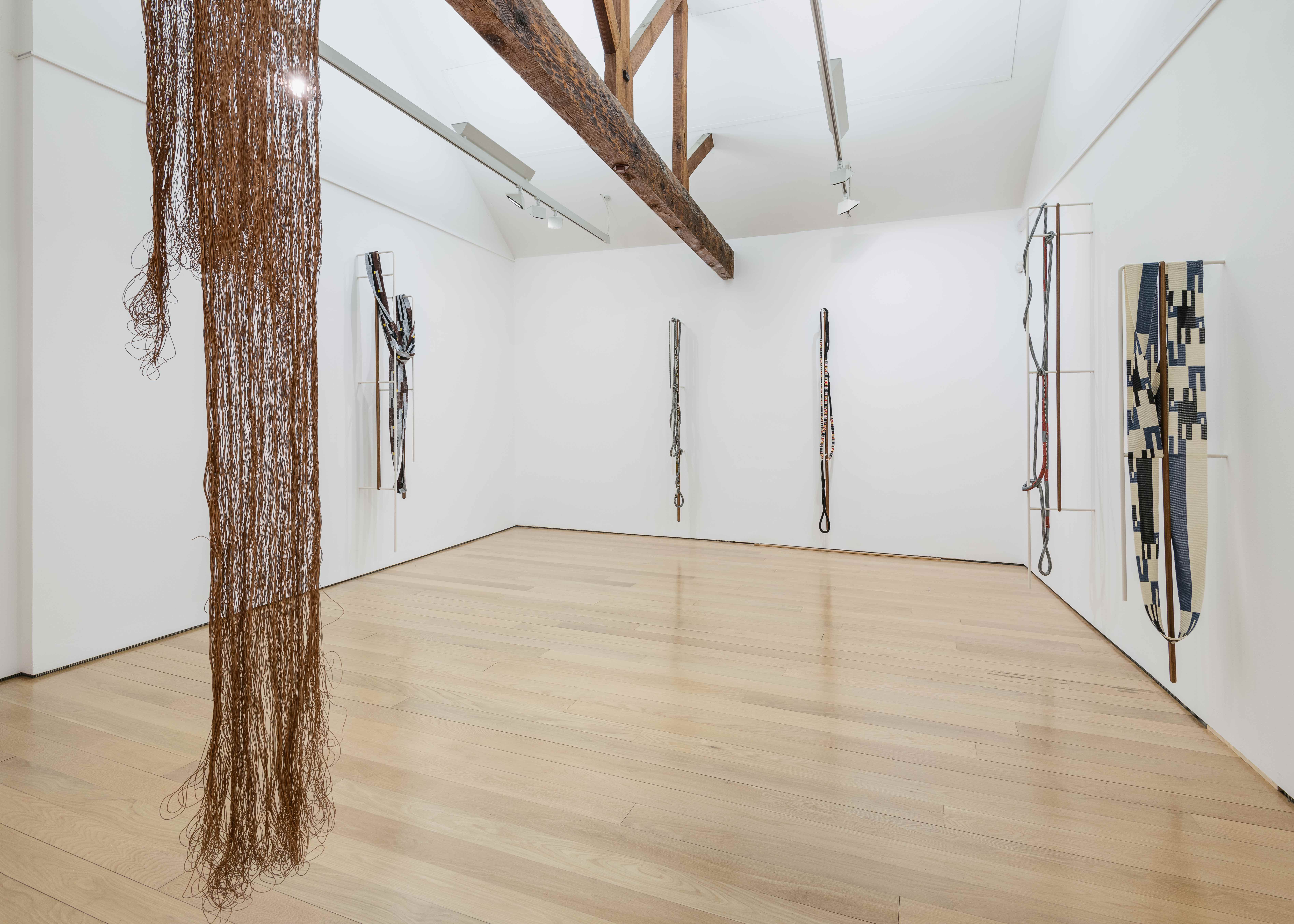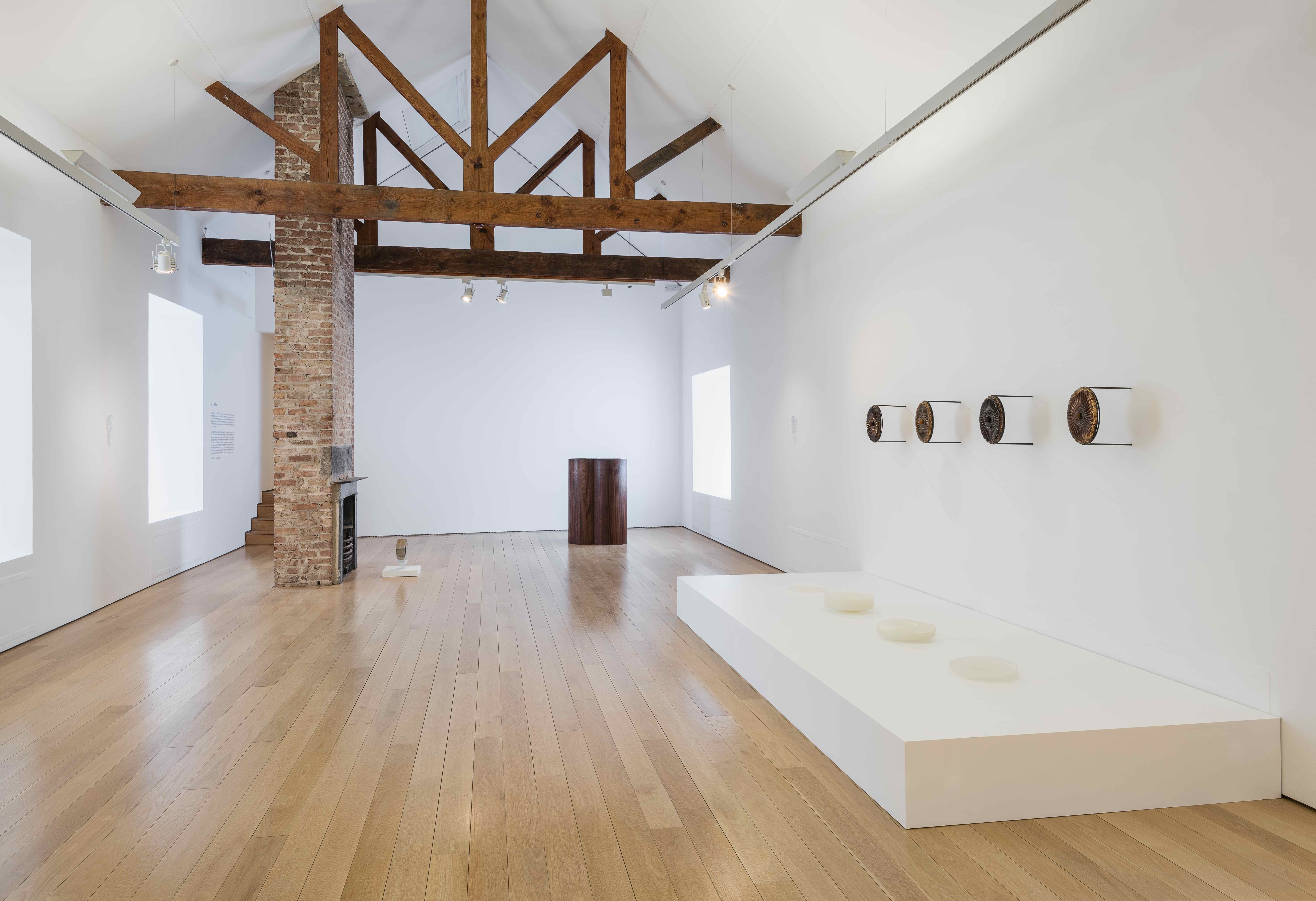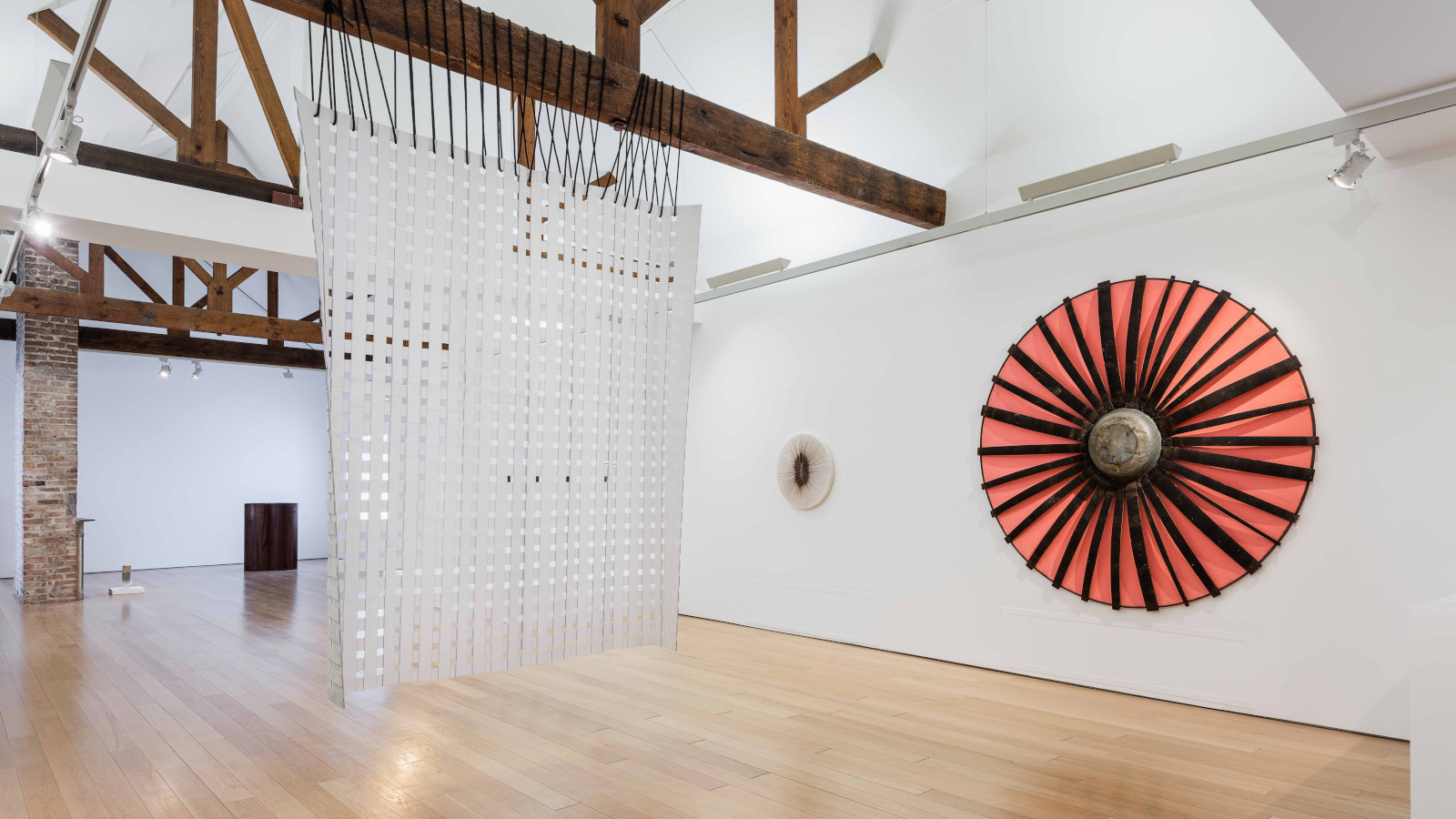
Lismore Castle Arts stages exhibitions at historic venues in and around the scenic village of Lismore and its eponymous 11th-century castle, in Waterford, Ireland. Currently on show are site-specific installations by Aleana Egan, Caroline Agruirre, and Niamh O’Malley, in addition to an annual group exhibition, ‘Each now, is the time, the space’, featuring artists Veronica Ryan, Leonor Antunes, Rhea Dillon and Alexandre da Cunha.
The latter show is curated by Habda Rashid, senior curator of Modern & Contemporary art at Kettle’s Yard and the Fitzwilliam Museum. She has brought together the four artists, all of whom work with sculpture and found phenomena, with an ethos inspired by the work of legendary experimental musician and artist John Cage, from whom Rashid also took the exhibition’s title.
‘Each now, is the time, the space’ at Lismore Castle Arts
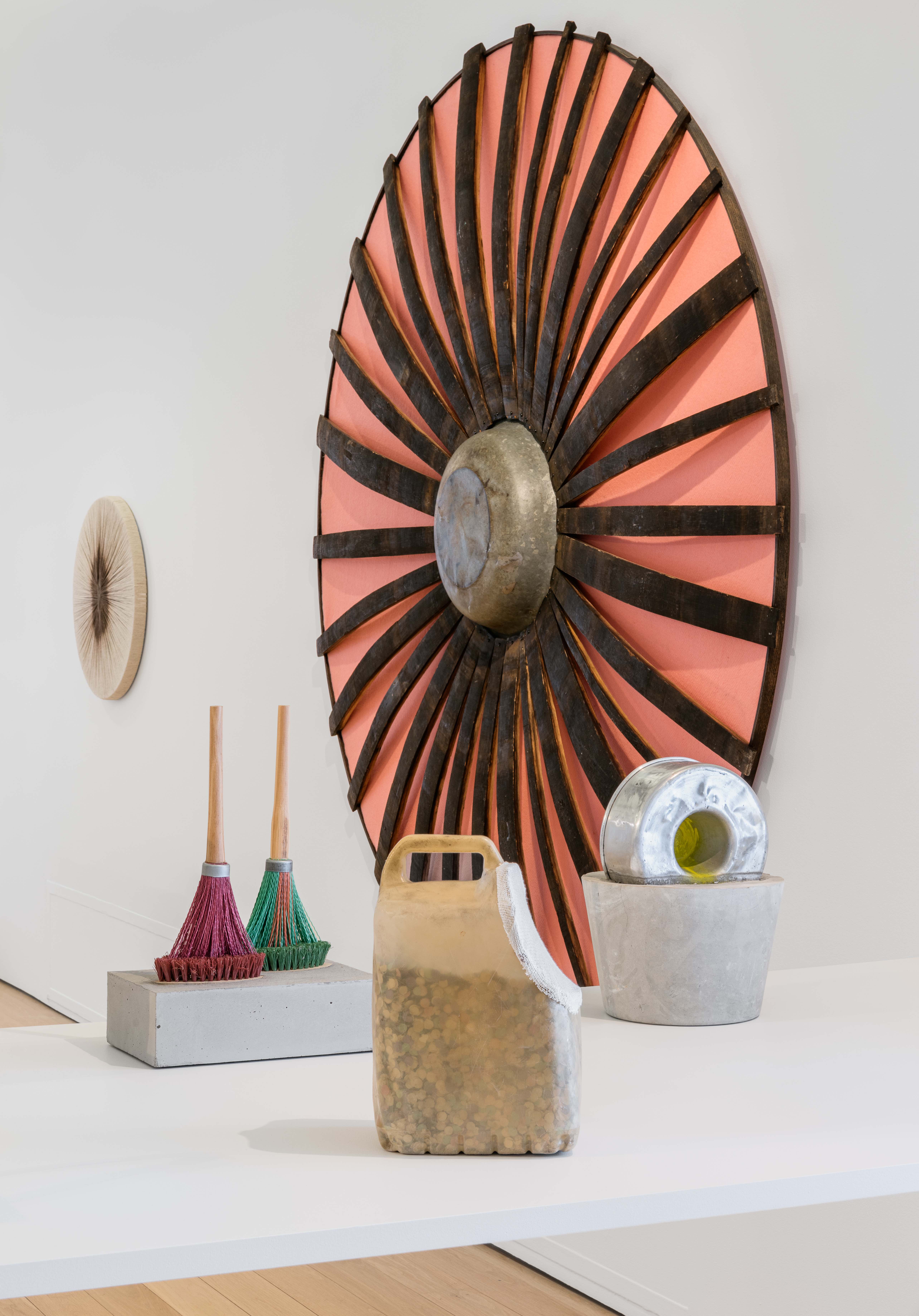
‘Music is very important to me; it’s the first creative art form that I encountered through family members singing Pakistani songs for different occasions. I suppose that was very spontaneous and Pakistani qawwali [sung poetry] always played in the house,’ Rashid explains. ‘I shifted to Western music, like most people growing up in the UK, but my formative years [were influenced by] Pakistani music.’
Cage’s words – ‘Each now, is the time, the space’ – inspire thoughts of immediacy and embracing the current moment; Rashid has sought to bring such intentions to the making and creating of art.
‘When I was thinking about how I wanted to curate the show, I was keen for there to be a moment in the exhibition when the works are brought together to create a connection, one that was spontaneous and perhaps temporary but meaningful,’ she says.

Citing Cage’s partner, dancer and choreographer Merce Cunningham, Rashid also wanted to highlight how the works shown, although static, move and change or have the potential of movement in them. Dillon’s moulded plates made from soap warp and dissolve, and Antunes’ draped sculpture, inspired by the work of Ani Albers, could move or be moved.
Antunes works with sculpture and installation using a variety of media; Da Cunha worked with found objects, making sculpture and wall-mounted work; Dillon’s work deals with history and identity through materials; and 2022 Turner Prize-winner Ryan is famed for her ‘poetic’ sculptural works.

‘You see this most keenly with Veronica’s work, which always looks like it’s tottering and about to fall over, and with Leonor’s pieces that have a flow. But you could say that about all the artists, the compositions by Alexandre, and the shifting nature of Rhea’s pieces, because of the material she uses. It’s as if there is a sense of movement and performance embedded in the show.’
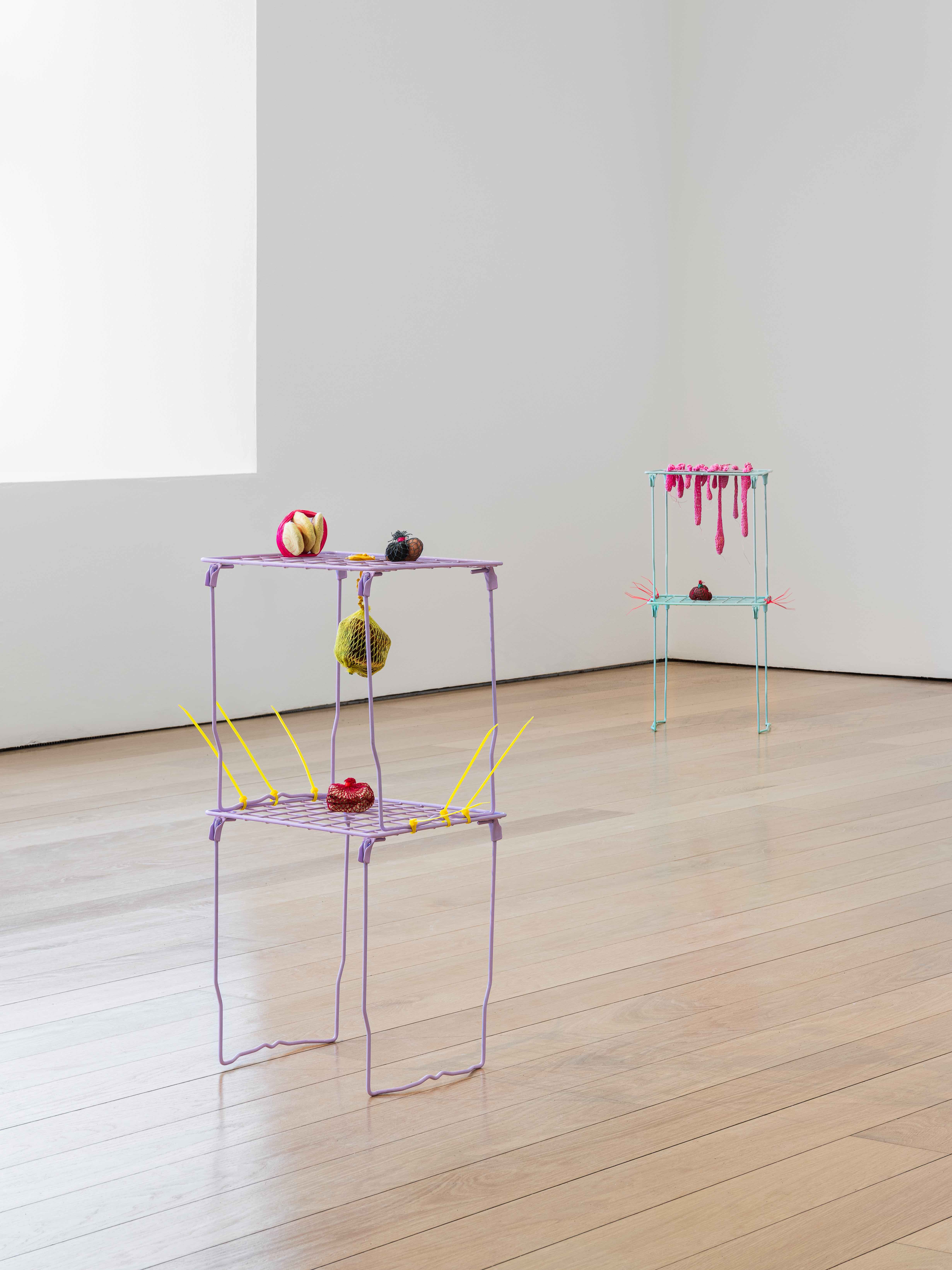
All four artists in the show exhibit a mastery in lightness of touch in the complex and layered works they create, either in combining found materials or altering them to bring them into their aesthetic. They also all employ powerful and unique visual languages, none of which is diluted by the context of the exhibition, which gives each work the opportunity to sing.
‘On a more practical level, when you work with four artists as a curator, you don’t want any of them to feel that you are trying to overly theorise or hammer on a label to their work so they can’t breathe. In a sense the artists I chose needed this level of space and freedom around their works,’ says Rashid. ‘I wanted to create a show which points to broadening understanding and reading of art, to create a playfulness and a less structured way of encountering artworks.’
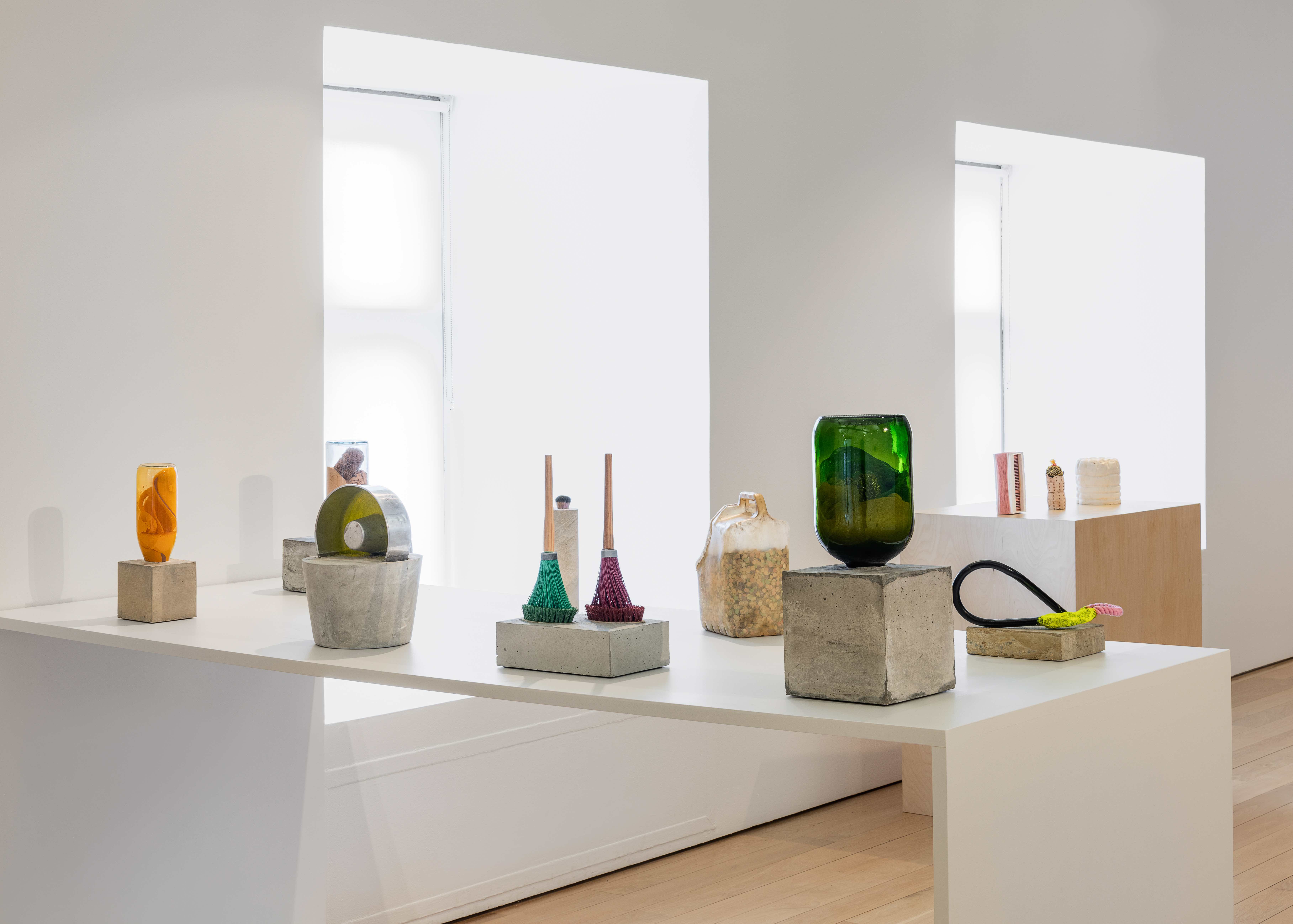
She hopes visitors will respond to the work in the exhibition space, over and above any theme, and she enjoys that immediacy.
‘It's something you can’t plan out too much until you are in the space and with the works, therefore it’s very scary and exciting for a curator; in that moment, it’s a kind of test on whether your ideas on the show can work.’
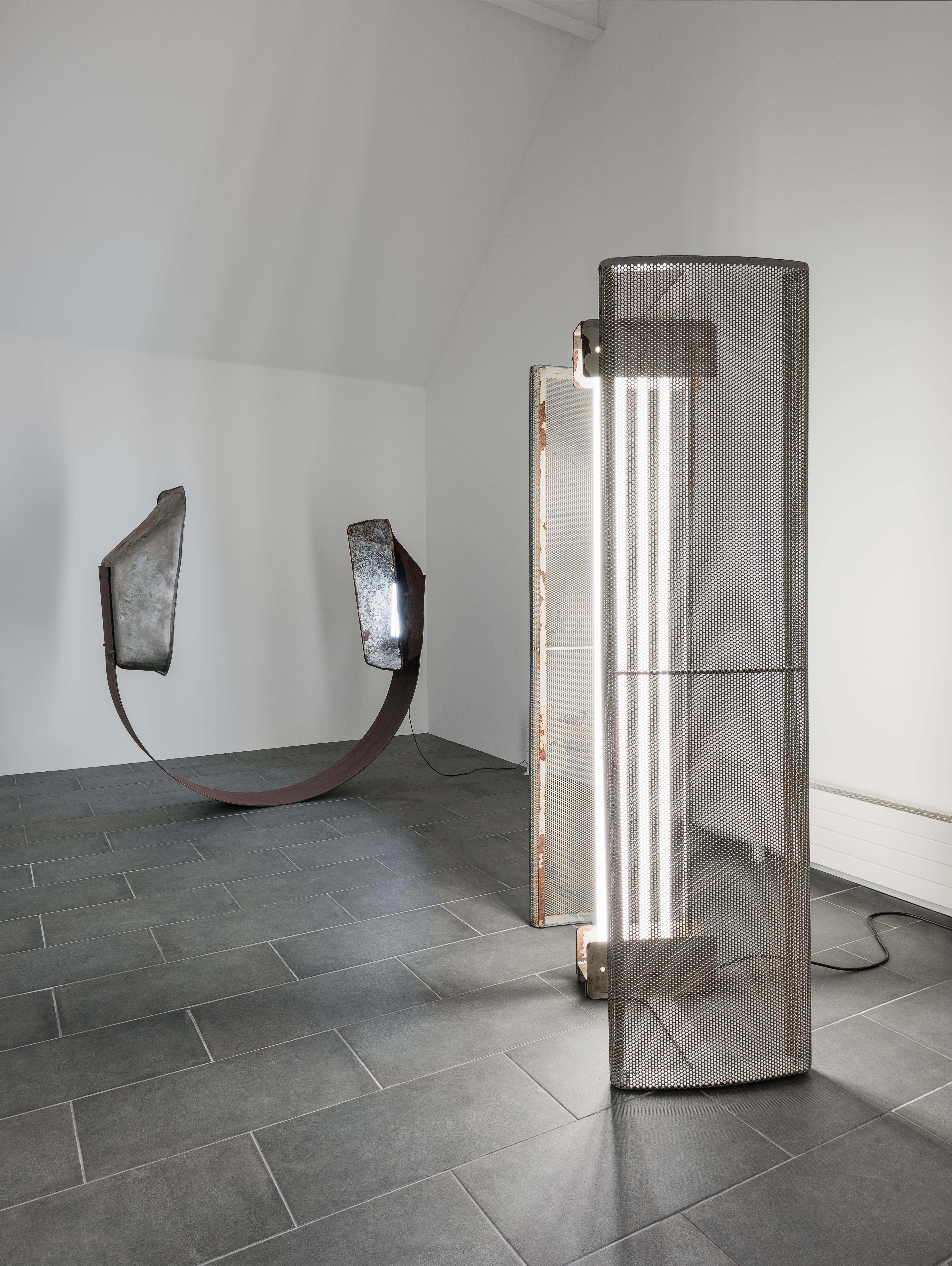
The context of Lismore Castle, owned by the Duke of Devonshire, is interesting and complex, with the most recent additions to the architecture made in the late 1800s. The castle has long been the centre of the community in Lismore, something that was palpable when attending the show.
‘It’s a castle that was built in 1185 but it is lived in today. It therefore carries this immense time span of objects and material within this singular context. It reminded me of some of the combinations made by the artists: Alexandre’s bottles and concrete; Leonor’s leather woven screen with rope that is a response to a screen made by the seminal Italian architect Carlo Scarpa; and Rhea’s use of mahogany and cut-glass crystal,’ says Rashid.
These layers of history, materials and ideas combine to make a truly rewarding and meditative exhibition, bringing together the artists’ identities and practices into a living idea.
‘Each now, is the time, the space’ is on until 27 October 2024 at Lismore Castle Arts, lismorecastlearts.ie
